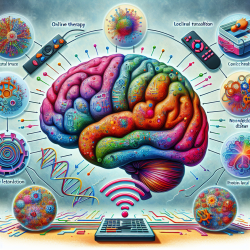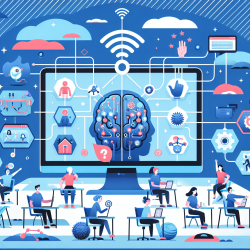The field of online therapy is continuously evolving, with new research providing valuable insights into how we can improve our practices and outcomes for students. One such area of exploration is the study of gene function control through local translation, as detailed in the research article "Remote Control of Gene Function by Local Translation." This research highlights the importance of RNA localization and its implications for protein localization and function, particularly in neurons.
Understanding Local Translation
The concept of local translation refers to the process where specific mRNAs are transported to subcellular locations and translated in response to localized signals. This mechanism allows for precise control over protein positioning and abundance, which is crucial for maintaining cellular homeostasis. In neurons, this process plays a vital role in the proper wiring and survival of neuronal networks.
Implications for Therapy Practices
The findings from this research have significant implications for therapy practices, particularly in addressing neurodevelopmental disorders. Dysregulated RNA localization and translation have been linked to various neurodevelopmental and neurodegenerative diseases. By understanding these mechanisms, therapists can develop more targeted interventions that address the underlying molecular pathologies.
- Targeted Interventions: Therapists can focus on interventions that support proper RNA localization and translation processes, potentially improving outcomes for students with neurodevelopmental disorders.
- Enhanced Understanding: By gaining a deeper understanding of how localized translation affects neuronal function, therapists can better tailor their approaches to meet individual student needs.
Encouraging Further Research
This research opens up new avenues for further exploration. Practitioners are encouraged to delve deeper into the mechanisms of local translation and its broader implications. By staying informed about the latest developments in this field, therapists can continue to enhance their practices and contribute to advancing knowledge in special education therapy.










